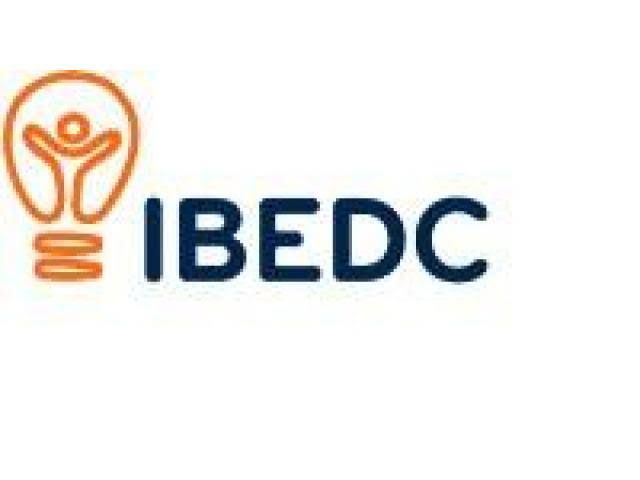The University College Hospital (UCH) in Ibadan, Nigeria’s premier teaching hospital, has been disconnected from the electricity grid by the Ibadan Electricity Distribution Company (IBEDC) due to an outstanding debt exceeding N400 million. This disconnection has raised serious concerns about the hospital’s operational capacity, particularly in maintaining critical healthcare services reliant on constant power.
Background of the Debt and Disconnection
According to IBEDC, UCH’s unpaid electricity bills have accumulated over time, reaching the significant sum of over N400 million. This outstanding balance has strained the financial relationship between the two entities, culminating in the recent disconnection. IBEDC has stated that it made several attempts to negotiate a payment schedule with UCH, but no feasible solution was reached, leading to the decision to cut power.

The disconnection underscores the broader challenge of unpaid debts in the Nigerian power sector, where many public institutions struggle to meet their financial obligations. For UCH, power bills remain a substantial cost due to its extensive facilities, specialized equipment, and high daily patient load. Without adequate funding to settle these bills, the hospital’s debt to the distribution company grew, eventually leading to this drastic measure.
Impact on Hospital Operations and Patient Care
The loss of power at UCH has significant implications for the hospital’s ability to provide healthcare. Many departments, particularly intensive care units, operating theaters, and laboratories, rely on a stable electricity supply for their medical equipment to function. Prolonged power outages could disrupt critical procedures, jeopardize patient care, and lead to delays in treatment and diagnostics.
In response to the disconnection, UCH has activated backup generators to maintain essential services. However, relying solely on generator power is costly and unsustainable for extended periods, especially given the hospital’s substantial power needs. Furthermore, the fuel costs associated with running large generators place additional financial burdens on UCH, creating a cycle of resource strain that complicates the hospital’s ability to address its debt.
### Broader Implications for Public Institutions and Utility Providers
The UCH disconnection reflects a larger issue affecting Nigeria’s public institutions and the power sector. Many public hospitals, educational institutions, and government agencies face similar challenges with unpaid electricity bills, often due to limited budgets and competing financial priorities. As utility companies, like IBEDC, enforce debt recovery measures, public institutions may continue to face disruptions, potentially impacting services and operations.
For the power sector, unpaid bills from large consumers like UCH contribute to financial shortfalls, which affect the ability of distribution companies to improve infrastructure and service quality. The Nigerian electricity market has long struggled with liquidity issues, and significant unpaid debts only exacerbate these financial constraints. Utility providers are therefore under pressure to pursue debt recovery to sustain their operations.
### Path Forward: Possible Resolutions and Financial Support
In the wake of the disconnection, stakeholders are calling for an urgent resolution that balances the hospital’s operational needs with IBEDC’s right to payment. Potential options include:
1. **Debt Restructuring Agreement**: UCH and IBEDC could negotiate a phased repayment plan, allowing the hospital to settle its debt over an extended period while retaining access to electricity. Such agreements have been used in other cases where public institutions face significant arrears.
2. **Government Intervention**: The federal or state government could intervene by providing financial support to cover part or all of the hospital’s outstanding debt. Such intervention would alleviate the immediate crisis while ensuring continuity of healthcare services. In the long term, government support could include subsidies for public hospitals’ electricity costs, allowing institutions like UCH to manage their finances better.
3. **Energy Efficiency Initiatives**: Another potential solution involves implementing energy-saving measures within the hospital to reduce its electricity consumption and costs. Upgrading equipment to more energy-efficient models and optimizing energy use in non-essential areas could help UCH reduce its power bills over time.
4. **Alternative Power Solutions**: Given the unreliability and high cost of grid power, exploring alternative energy sources, such as solar power, could provide a more stable and sustainable power supply for UCH. While the initial investment is high, renewable energy could eventually reduce dependency on the grid and lower operational costs.
Conclusion
The disconnection of UCH over a N400 million debt serves as a stark reminder of the financial challenges faced by Nigeria’s public institutions and the power sector’s difficulties with debt recovery. While IBEDC must safeguard its financial interests, ensuring that essential services like healthcare remain operational is equally crucial. Immediate solutions, coupled with long-term strategies to support the financial sustainability of public institutions, are needed to prevent similar situations in the future.
As negotiations between UCH and IBEDC unfold, stakeholders, including government representatives, healthcare advocates, and utility regulators, will be closely monitoring the outcome. The resolution reached will set an important precedent for balancing debt recovery with public service continuity, underscoring the need for sustainable financial policies for Nigeria’s critical institutions.
Support InfoStride News' Credible Journalism: Only credible journalism can guarantee a fair, accountable and transparent society, including democracy and government. It involves a lot of efforts and money. We need your support. Click here to Donate
